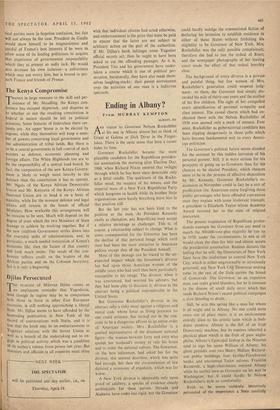The 'French Say Yes
TIIE 90 per cent. vote in favour of President de Ciaulle's Algerian policy demonstrates decisively how little red support the partisans • of 'French Algeria' enjoy in NI etropolitan France. Against this massive assent the murderers of the OAS look as puny its they have alv■Ats looked.squalid..Vhese results a ill have the advan- tage of demonstrating to the FI.N to what extent Frenchmen are unanimous in their backing of the Evian agreements. Nor is there much sign in the voting of dissatisfaction with President de Gaulle's policies in general. The figures for abstentions and spoiled ballot papers were hardly higher than in the referendum of January, 1961 —a fact which is surprising when the misgi■ ings about the character of the regime which had been widely expressed by intellectuals and poli- ticians are considered. Plainly, however, this referendum marks the end of a phase in French history. New policies and new men will be re- quired, and reports that M. Ochre is now ready to resign pose the question of how far President de Gaulle is willing to go (and in what direction) when he rehandles a government that can only be described as 'his.' For the moment the poli- tical parties seem in hopeless confusion, but this Will not always be the case. President de Gaulle would show himself to be magnanimous and careful of France's best interests if he were to allow some of its leading politicians to acquire that experience of governmental responsibility Which they at present so sadly lack. He would also decrease his own isolation—a solitariness Which may not worry him, but is bound to per- turb France and friends of France.



































 Previous page
Previous page